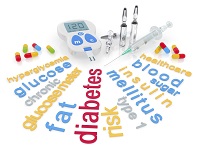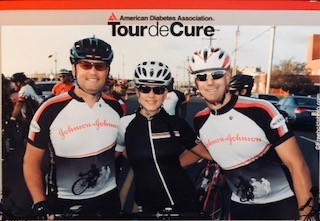November is National Diabetes Awareness Month. Did you know that according to the American Diabetes Association an estimated 30 million or 9.4 percent of Americans has diabetes?
Over ten years ago two of my family members were diagnosed. Hearing this news was both scary and overwhelming for the entire family.
What exactly is diabetes? Did you know there are three types?
- Type 1 –Your body does not make insulin. This is a problem since you need insulin to take the glucose (sugar) from what you eat and turn it into usable energy for your body.
- Type 2 –The most common type where your body does not make or use insulin effectively. You may need medication or insulin to manage control.
- Gestational – Some women can develop this when pregnant. Most of the time it goes away after the baby is born, but women and their children have a greater chance of developing diabetes later in life.
Early detection is key. However, some people with Type 2 Diabetes have symptoms so mild that they go unnoticed. That was the case for my family. Here’s a list of what to look out for:
- Urinating often
- Feeling very thirsty
- Feeling very hungry - even though you are eating
- Extreme fatigue
- Blurry vision
- Cuts/bruises that are slow to heal
- Weight loss - even though you are eating more (Type 1)
- Tingling, pain, or numbness in the hands/feet (Type 2)
Once my family members were diagnosed with Type 2, it took some time to learn how to take blood sugar readings and the importance of tracking these readings, the proper timing and administration of medications, how to alter their diet and add in some daily exercise. It really was a complete lifestyle change.
Through this process, one thing became crystal clear. THEY were the center of their diabetes care team. Being self-responsible in managing their diabetes through adherence, asking questions as they came up, and seeking support from both family and friends all played an important role in management.
I’ve learned so much about diabetes over these ten years, and while I do not have it, I am at a higher risk. Exercising daily, eating healthy, and following through with regular check-ups is my prevention plan.
More than likely you have at least one person in your life living with diabetes. Knowledge is power. Encourage them to seek out a Diabetes Educator especially in the beginning for education and support. Take a few minutes to visit the American Diabetes Association http://www.diabetes.org/ and discover all the ways you can get involved and help in spreading the word!



1 Comment
Great article! Thanks so much for sharing.